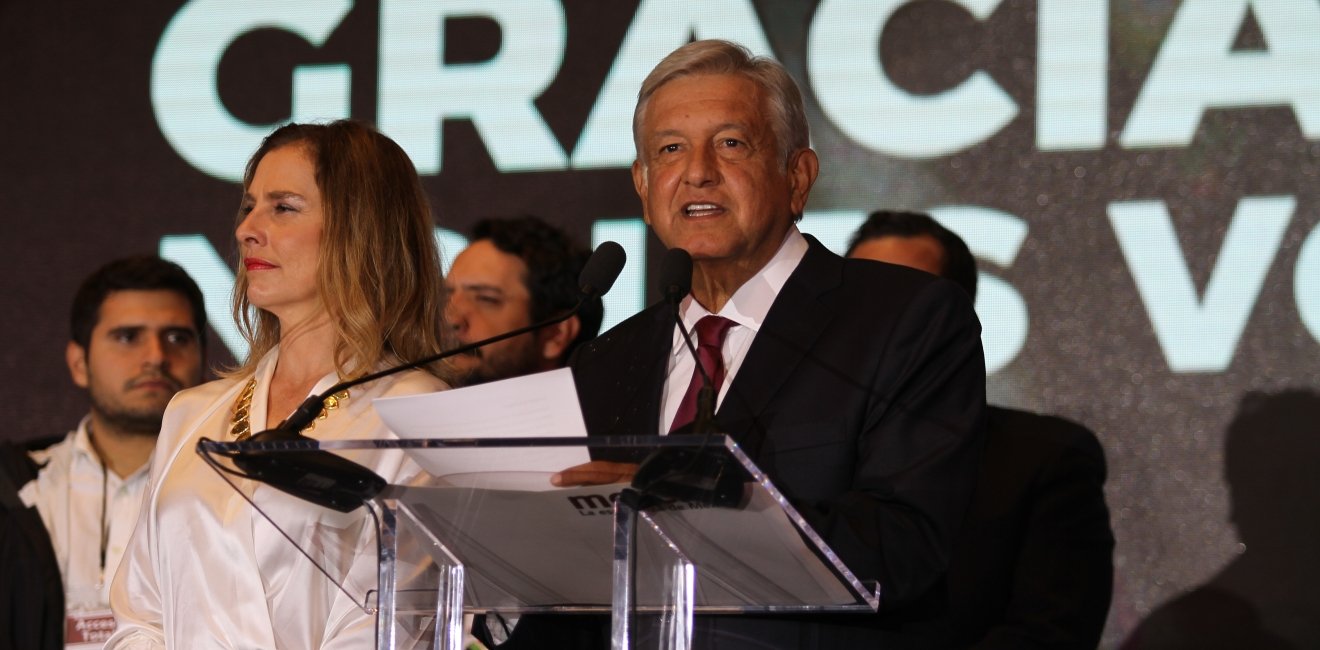On July 1st, Andrés Manuel López Obrador won Mexico’s presidential election with 53% of the vote –the most significant margin in contemporary Mexican history. Popularly known as AMLO, President-elect López Obrador rode a wave of dissatisfaction against corruption, crime, and slow economic advancement.
According to a Mitofsky poll, over 60% of the population is satisfied with the election’s results, but López Obrador and his party, the National Regeneration Movement (MORENA), now need to deliver, especially for Mexico’s young people.
As a candidate, AMLO promised more jobs and educational opportunities for Mexico’s youth, a much-needed initiative given the challenges Mexican workers face in a rapidly changing world.
Mexico today faces a skills gap that threatens the country’s competitiveness and shifting demographics that threaten the long-term health of its economy. Technological change will bring new challenges and, without policy reforms and better practices, the country risks higher levels of unemployment, inequality, and marginalization.
Almost 22% of 15 to 29-year-olds in Mexico fall under the NEET category (Not in Employment, Education, or Training) – the majority of which are women. According to the OECD, this costs the country almost 1% of its annual GDP – which amounts to approximately $10 billion USD. Mexico also faces unequal economic growth among its regions. Economic activity is concentrated in Mexico’s northern and central states, while the country’s south remains stuck with low economic growth and high levels of poverty.
The skills gap adds to Mexico's development challenges and further affects its economy and the well-being of its population. According to Manpower’s Talent Shortage Survey, 50% of employers in Mexico struggle to fill vacancies because applicants lack experience or have inadequate technical or professional skills. As the global economy transitions into the “Fourth Industrial Revolution”, Mexico's economy will need a labor force with the mix of skills necessary to manage new technologies and adapt to rapid changes in the workplace.
For Mexico to succeed, AMLO's new government must implement a workforce development strategy that extends the benefits of technological progress to the whole population, including vulnerable groups such as NEETs. By ensuring that everyone can be a part of the digital era, Mexico will achieve higher levels of productivity and economic growth, while reducing poverty rates and marginalization.
Mexico’s educational system must be reformed so that both new and experienced workers can adapt to and prepare for technological and economic changes ahead. This means that AMLO must also bring teachers and their powerful national union into the fold. As educators, they should be among the first to learn and acquire new skills. Quality is one of the biggest challenges in Mexico’s education system. Student performance in the subject areas of mathematics, reading, and science has not improved since 2006 and remains lower than the OECD average. If teachers continue to resist change, kids and the youth will be the ones most negatively affected.
As in other developed economies, the classic academic model must evolve. Room must be carved out for practical instruction, as this is how students can better develop the technical and professional skills required for future jobs. The Mexican Model of Dual Education (MMED), a multi-stakeholder effort that combines academic instruction and on-the-job learning, is a good example. The new administration should continue to support MMED and should develop other types of “earn while you learn” programs.
AMLO’s proposed program “Youth Building the Future” is promising, although the details of the program have not yet been developed. Work-based learning programs, such as apprenticeships, can help increase educational attainment by allowing students to earn money while continuing their education. Educational systems and work-based learning programs must follow a demand-driven approach to ensure students and workers have the skills needed by employers. These programs will perform better if they are implemented hand-in-hand with the private sector and with stronger public-private partnerships. The new Mexican Federal government should incentivize and facilitate them.
Technology will help reduce barriers to the collection of data and lower the cost of creating platforms that make it available to everyone. But at present, information on skills trends and labor market needs is not widely available in Mexico. The new Mexican Federal government, in partnership with the private sector, should address this issue and take steps needed to provide teachers, students, parents, workers, employers, and policymakers with a national labor market information platform with disaggregated data at the state and local levels.
There are many opportunities for the incoming Mexican Federal Government to address these issues and improve its investment in the workforce. By doing so, AMLO can meet his campaign promise of making Mexico a prosperous country for all. Addressing workforce development challenges in Mexico requires a collaborative approach between governments, the private sector, and educational institutions. Come December, Mr. López Obrador will be in a unique position to bring all of them together.
This article was originally published on the Mexico Institute's blog on Forbes.com.






